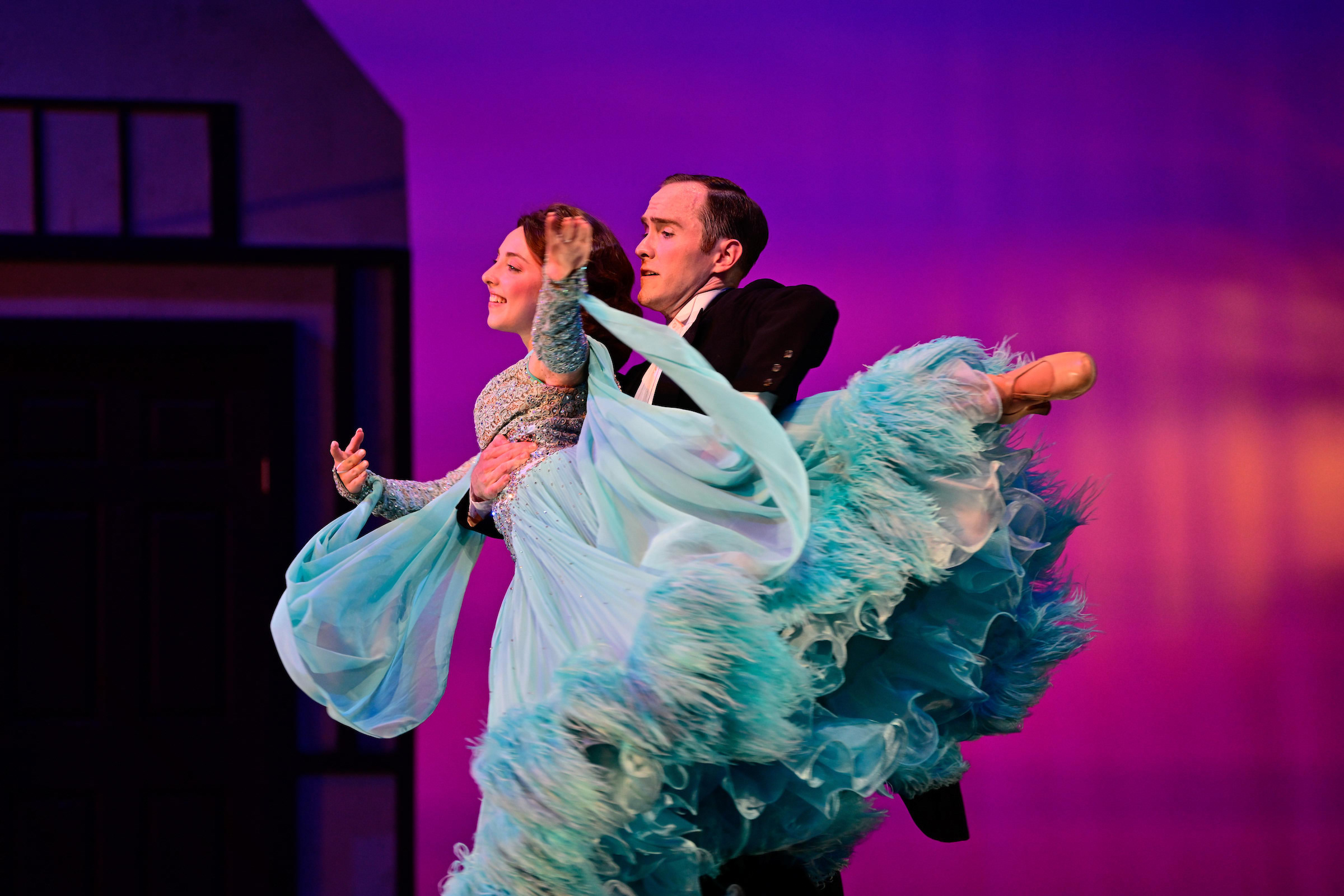by Daniel Hathaway
At 2 pm in Kulas Recital Hall, participants in Oberlin’s Baroque Performance Institute will play movements from François Couperin’s Concerts royaux, written for the court of Louis XIV. At the same hour in Freedlander Theater at the College of Wooster, Ohio Light Opera stages Me and My Girl (pictured).
Later today, the Canton Symphony fields a string quartet for one of its Summer Serenades (6:30 at Huston-Brumbaugh Nature Center in Minerva, and the Cleveland Lute Fest presents Bor Zuljan with flutist Mara Winter in early 16th century improvised music (7:30 at Harkness Chapel, Case Western Reserve University.)
For details, visit the Concert Listings page.
NEWS BRIEFS:
From Cleveland.com’s The Wakeup today: “Months after issuing a vote of “no confidence” in leadership, faculty members at the Cleveland Institute of Music are looking to unionize — and to have a more formal voice in decision making at the conservatory, reports Sean McDonnell. Faculty members have filed a petition with the National Labor Relations Board to create a bargaining unit and to hold a union election.”
INTERESTING READS:
The Chicago Sun Times has published a profile of Grant Park Orchestra conductor Carlos Kalmar, who is stepping down from that Millenium Park post after a 25-year tenure. According to the Cleveland Plain Dealer, Kalmar “filed a lawsuit in February against the Cleveland Institute of Music, where he was placed on leave last year from his position as director of its orchestral and conducting programs. He is seeking $25 million over alleged defamation from a sexual harassment investigation that cleared him of all wrongdoing. Kalmar declined to comment on the case.”
TODAY’S ALMANAC:
On this date in 1859, American composer, organist and pianist Mildred Hill first saw the light of day. Her signal contribution to Western music was the song Happy Birthday to You, the reworking of a children’s “Good Morning” song with lyrics by her younger sister Patty Smith Hill that first appeared in print in 1912 and has become one of the world’s most recognizable and frequently-sung ditties. It’s also become a favorite tune for improvisations and variations both serious. Click here to watch Teddy Abrahams play his variations inspired by Beethoven’s late piano sonatas.
And on June 27, 1922, American composer and pianist George T. Walker was born in Washington, D.C. A Wunderkind who graduated from Oberlin at the age when most of us were receiving our high school diplomas, Walker achieved many more firsts as a Black composer at the Curtis Institute and the Eastman School.
Walker’s five Piano Sonatas span his long career, the first dating from 1953, the fifth from 2003. University of Michigan professor Matthew Bengtson discusses them and plays excerpts in this video. Roman Rabinowitz played the fifth sonata recently at a ChamberFest Cleveland performance, and ChamberFest (and Gilmore) rising star Evren Ozel recorded the work for The Gilmore’s 2020-2021 virtual recital series in Kalamazoo’s Wellspring Theater. Watch the video here.




